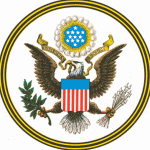
An online service provider’s (OSP’s) notification and takedown policy should include reasonable procedural steps to respect free speech, to allow for wholly original and authorized uploads, and to accommodate fair use. An OSP is not liable for violating these users’ rights as long as the provider acts on takedown notices in good faith and implements a counter-notification procedure. The safe harbor provisions do not require the service provider to notify the individual responsible for the allegedly infringing material before it has been removed, but the provisions do require notification after the material is removed.
OSPs seeking safe harbor under category § 512(c) “Hosting” must select an agent to receive notifications of claimed infringement from copyright holders, and must register that agent selection with the U.S. Copyright Office. This agent is typically a company employee. The provider must make available on its website, in a location accessible to the public, the designated agent’s contact information.
For an OSP of any type to enjoy safe harbor from copyright infringement, it must adopt a policy that provides for the termination in appropriate circumstances of subscribers and account holders of the service provider’s system or network who are repeat infringers. Disqualification from safe harbor protection can result if a company’s policy is no more than an ineffective, meaningless attempt to satisfy the requirements of the DMCA.
Finally, the service provider must not interfere with “standard technical measures” used by copyright owners to protect copyrighted works. The definition of standard technical measures includes a requirement that they be developed pursuant to a broad consensus of copyright owners and service providers in an open, fair, voluntary, multi-industry standards process.
More on notice and takedown requirements next time.

